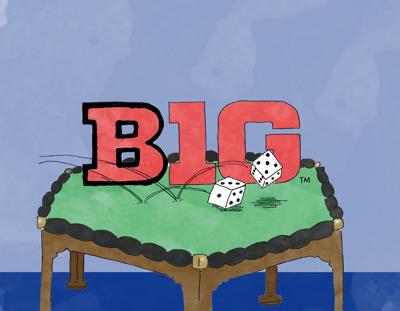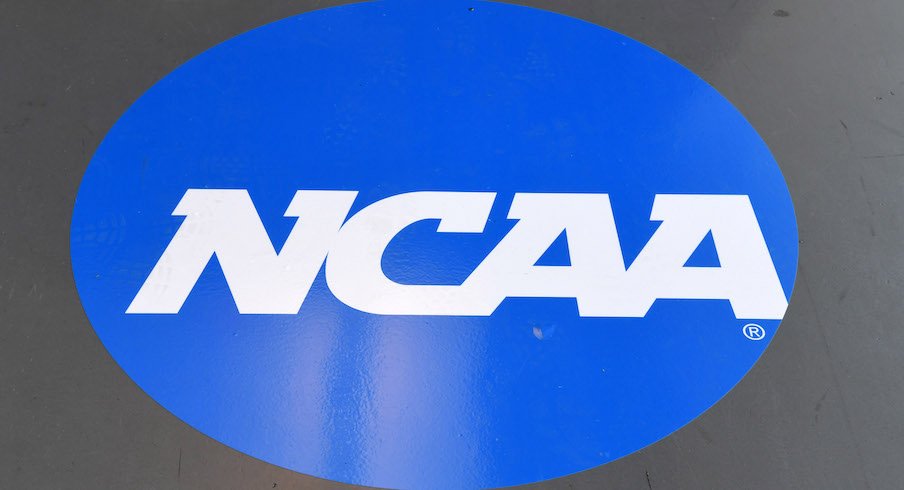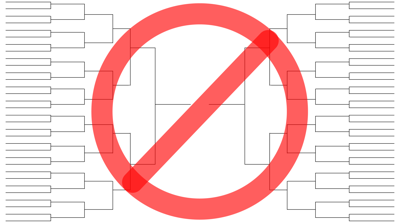Ncaa Athlete Gambling Rules
To protect the integrity of college athletics contests, NCAA regulations prohibit student-athletes from betting money on any sporting event (college, professional or otherwise) in which the NCAA conducts collegiate championships. The NCAA has a prohibition in place against athletes gambling on sports, but prior to last summer, only the state of Nevada had legal, traditional sports wagering. Ten or more states could have legal sports betting by the end of 2019. The NCAA, headquartered in Indiana (which is close to legalizing sports betting), is concerned. The NCAA approved nationwide name and image likeness rights for athletes, meaning that NCAA athletes can now profit off their image. These new rules likely won’t allow for sports betting endorsements or for players to associate with any products that might hurt the NCAA’s brand (alcohol, tobacco, etc.). As noted previously, gambling is not a new threat to college athletics; it’s been legal in Nevada since 1931. Both the NCAA and the Nevada sports books have an interest in keeping the games clean.
/athlete-in-mid-air-doing-pole-vault-184629865-5b2533fa119fa8003612d712.jpg)
- The NCAA approved nationwide name and image likeness rights for athletes, meaning that NCAA athletes can now profit off their image.
- These new rules likely won’t allow for sports betting endorsements or for players to associate with any products that might hurt the NCAA’s brand (alcohol, tobacco, etc.)
- Players can’t be associated with their team and can’t appear in uniform in these endorsements, and endorsements can’t be based on a player’s athletic accomplishments.
- The NCAA recommendations would also prohibit new college sports video games.
INDIANAPOLIS – The NCAA made a change on Wednesday by approving name and image likeness rights for college athletes. NCAA athletes in all sports can begin signing endorsement deals and profiting off their image in 2021.
These rules won’t be exclusive to money sports like college football and college basketball but will apply to all athletes regardless of sport. The NCAA and its member institutions will not be paying athletes directly.
Ncaa Athlete Gambling Rules List
The rules governing these new name and image likeness (NIL) rights haven’t been cemented yet, but the chances of sports betting firms being included seem remote. A report published by a working group chosen by the NCAA Board of Governors recommended that the Board consider:
“Whether certain categories of promotional activities (e.g., alcohol, tobacco and sports gambling) should be precluded because they are inconsistent with the NCAA membership’s values.”

While this is just a recommendation of “consideration”, the language makes it clear that there is little room for debate, and sports betting endorsements seem extremely unlikely.
The NCAA as an organization takes a hardline stance against gambling.
Some thought that with the financial crisis of the Coronavirus pandemic, the NCAA might embracing legal sports betting to bolster its strained finances, but that doesn’t appear to be happening.
What Kinds Of Endorsements Can Athletes Sign?
As always, the NCAA has found a way to act sanctimonious about a rule change that was all but legally mandated.
While athletes will be able to sign endorsements, including with boosters of their school, they can’t be wearing school colors or logos, and the endorsement deal can’t be based off a player’s on-field accomplishments.
This restriction ostensibly exists to prevent big programs like Ohio State and Alabama from using their vast financial resources to gain a competitive advantage over smaller, less valuable programs. This includes a ban on using endorsement deals as inducements for incoming high school recruits.
As The Athletic’s Andy Staples described it: “[The NCAA] will continue to go through the motions of protecting a notion of parity that has been hilariously refuted by every college football season that has ever been played.”
Instead, endorsements might be more akin to those of social media influencers: players using their individual image and reach to promote lifestyle products, athleticwear, energy drinks, etc.
All endorsement contracts signed will be reviewed by the NCAA before they are approved. The organization will presumably maintain the right to veto or void any contract if it includes disagreeable terms or language.
This result will likely be a cavalcade of lawsuits from disgruntled players whose contracts were voided.
Will The NCAA Video Game Return At Least?
The NCAA bricked perhaps the easiest public relations layup of all time with these new rules by not including provisions for a new college football video game.


Many fans who don’t care at all about NIL rights do care about getting their hands on a new NCAA Football game but opening the door for a licensed video game would have likely meant allowing players to collectively bargain for their representation in the game.
That presents a problem to an organization tasked with managing a multi-billion-dollar college sports industry while simultaneously promoting the notion that its athletes are amateurs.
Players could potentially negotiate individually with EA Sports or another video game publisher, but the rules seem to indicate that they would not be allowed to appear in uniform or be directly associated with their team.
News tags: Alabama Crimson Tide College Basketball College Football Coronavirus COVID-19 EA Sports NCAA NCAA Board of Governors NCAA Football 14 Ohio State Buckeyes
With a dual background in English and sports performance and business analytics, Carter aims to write stories that both engage and inform the reader. He prides himself on his ability to interweave empirical data and traditional narrative storytelling. When he isn’t keeping readers up to date on the latest sports betting legal news, he’s banging his head against a wall regretting his decision to be a Tampa Bay Buccaneers fan.
By Steve BerkowitzUSA TODAY
College athletes would gain new and significant abilities to make money from the use of their name, image and likeness, beginning Aug. 1, 2021, under a series of specific proposals for Division I rules changes unveiled Friday.
Ncaa Athlete Gambling Rules Cheat
However, the proposed rules changes would give schools discretion to prevent athletes from having deals that are deemed to conflict with existing school sponsorship arrangements. These restrictions could put the NCAA at odds with the provisions of laws that have been passed by four states and are set to take effect in the coming months and years.
The proposed rules changes were listed in a document outlining changes that are scheduled to be voted on by the NCAA Division I Council during the association’s convention in January. The Council, comprised of representatives of the various conferences, is the primary rules-making body for the association’s top-level schools.
Conferences can offer amendments to any of the proposed rules changes until Dec. 15, meaning the changes proposed Friday could be altered further before they are voted on. Meanwhile, bills relating to this topic remain pending in both the U.S. Senate and House of Representatives.
The basic contours of the NCAA's proposed changes have been discussed previously by association and college sports officials, but this is the first time the changes have been put into fully formed prospective rules.
The rules changes being proposed also generally would apply — at least from the NCAA's perspective — to prospective college athletes. The document unveiled Friday says: 'This model would ensure consistency and clarity for prospective student-athletes' and minimize 'the risk of prospective student-athletes entering into agreements or relationships before full-time enrollment that could render them ineligible when they become student-athletes.'
How this would connect with various current state high school athletic association rules remains to be seen.
Ncaa Gambling Policy
The NCAA proposals also call for college athletes and prospective athletes engaging in name, image and likeness business activities to disclose those activities to 'an independent third-party administrator' that is not detailed further.
But in citing the need for such an entity, the new document acknowledges 'boosters may be the most likely sources of opportunities for student-athletes to engage in name, image and likeness activities. Student-athletes should be permitted take advantage of legitimate opportunities, even if the source of the opportunity comes from a booster of the institution.'

College athletes also would be allowed to make money for signing autographs and for providing instruction lessons. They would be allowed to sell memorabilia once they have completed their eligibility. They also would be able to use crowdfunding sites to raise money for educational expenses that exceed the cost of attendance.
More broadly, according to the proposals, athletes would be allowed to use their name, image and likeness (NIL) “to promote … athletically and nonathletically related business activities (e.g., products, services, personal appearances).” Athletes would be allowed to mention their involvement in sports and the name of the school they attend. However, they would not be allowed to use any institutional marks, such as logos.
Specifically, the proposals say athletes would be allowed “to advertise or promote the sale or use of a commercial product or service, provided there is no institutional involvement in the arrangement.”
Athletes would be allowed to use what the proposals call 'professional service providers' — but not school employees or contractors — to seek and negotiate deals, but the athletes will face requirements concerning disclosure of their NIL activities and other significant restrictions:
• They would not be allowed to engage in NIL activities involving a commercial product or service that conflicts with NCAA legislation. That means they cannot be involved with sponsorships related to sports betting or banned substances.
• Athletes’ NIL could not be used by “an athletics equipment company or manufacturer to publicize [that] the institution's athletics program uses its equipment.” This would seem to heavily narrow or foreclose an athlete's ability to have a sponsorship deal with a shoe and apparel company that has a contract with the athlete’s school. California's NIL law, set to take effect Jan. 1, 2023, would allow athletes to have deals with shoe and apparel companies that sponsor their respective schools.
• Schools would be able to prohibit an athlete from being involved in NIL activities that “conflict with existing institutional sponsorship arrangements. An institution, at its discretion, may prohibit a student-athlete’s involvement in name, image and likeness activities based on other considerations, such as conflict with institutional values, as defined by the institution.”
The schools would be required to have policies that establish the NIL activities in which athletes may or may not engage, and they would have to provide those policies to prospective student-athletes.
Student Athletes And Gambling
This has the potential to heavily narrow commercial opportunities available to athletes, as many schools have sponsorships with a broad array of companies in many brand categories, from shoes and apparel to local car dealerships, banks and restaurants.
This restriction is where the conflict with state laws could occur. Recently enacted statutes in California, Colorado, Nebraska and New Jersey include provisions that would prevent athletes from having an endorsement contract that would conflict with a school contract. But those states’ laws also say that schools cannot have contracts that prevent athletes from using their NIL for a commercial purpose when the athlete is not engaged in official team activities.
(Florida also has a college-athlete NIL law that is set to take effect July 1, 2021, but that law does not have the additional provision regarding athletes' activities outside official team settings.)
In other words, those states’ laws would appear to prevent a school aligned with one company from preventing its athletes from having a deal with a competing company, as long as the athlete is keeping the promotional activities separate from official school activities.